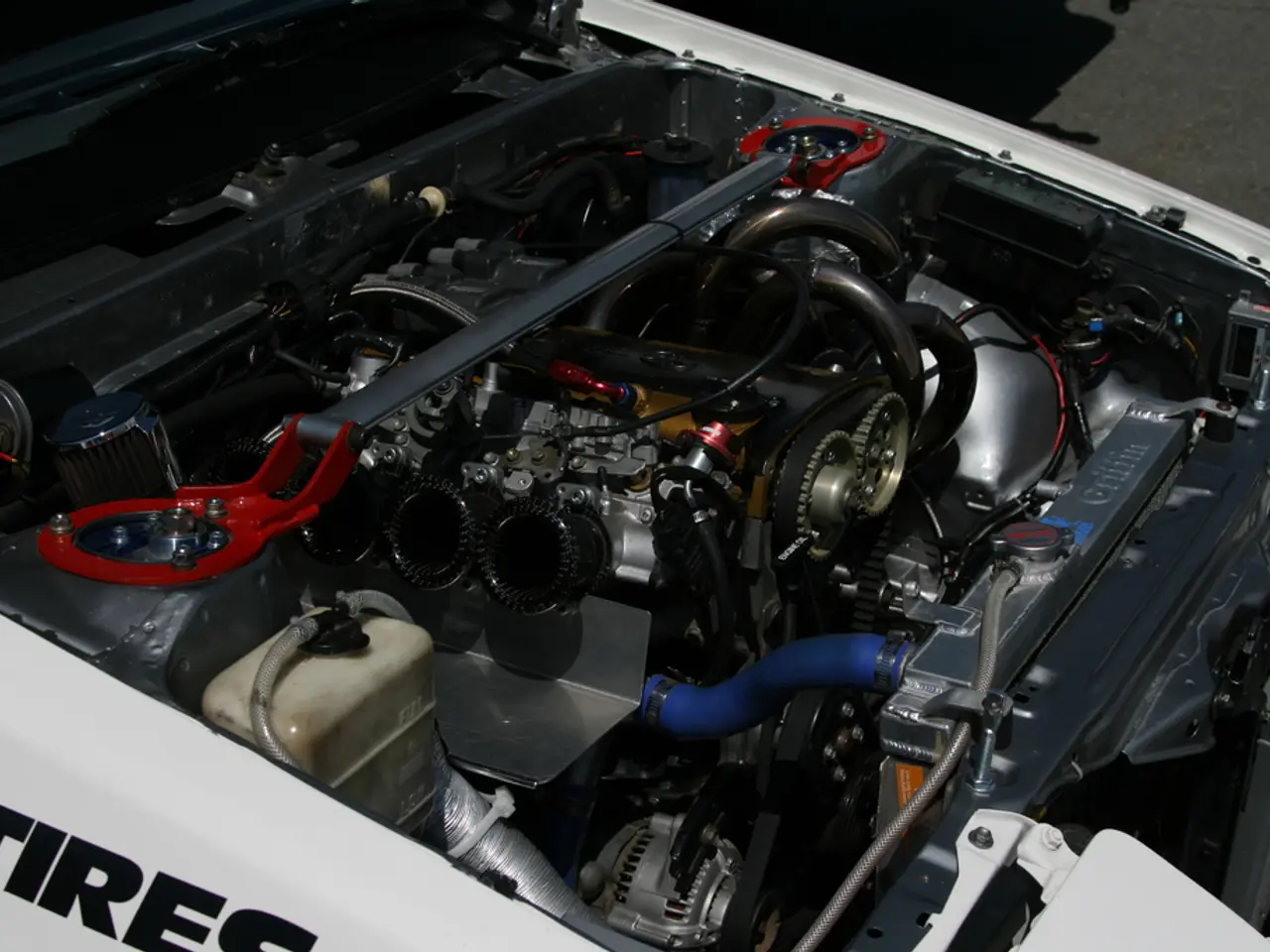Celebration of Hydrogen Fuel Cell Day on October 8, initiated by Hyzon, Toyota, and Nikola
Headline: Hydrogen Fuel Cell Technology Advances in Commercial Transport
In the realm of sustainable energy, companies like Hyzon, Toyota, and Nikola are making significant strides in the development of hydrogen fuel cell technology. These advancements are focused on enhancing fuel cell efficiency, durability, and cost reduction, with a particular emphasis on commercial vehicles and trucks.
Hyzon Motors is playing a pivotal role in the hydrogen fuel cell commercial truck market. The company's latest achievement is the Start of Production (SOP) of its single-stack 200kW Fuel Cell System, an event that marks a significant milestone on the occasion of the tenth annual National Hydrogen and Fuel Cell Day. With advancements in fuel cell system integration and hydrogen storage, Hyzon is contributing to making hydrogen trucks more commercially viable, particularly in the long-haul segment.
Toyota has unveiled its third-generation fuel cell system, engineered specifically for commercial vehicles. This system, set to debut in 2025, is designed to match the durability of diesel engines, positioning Toyota’s fuel cells for broader adoption in the heavy-duty transport sector. Toyota is also engaging in strategic partnerships, such as the one announced in 2024 with BMW, aimed at developing fuel cell systems and hydrogen infrastructure to accelerate the transition to a hydrogen society and achieve carbon neutrality goals.
Nikola Corporation has completed successful long-haul testing of its hydrogen fuel cell trucks, marking a critical validation step for hydrogen-powered Class 8 trucks. Nikola remains focused on commercialization and aims to leverage improvements in fuel cell durability and efficiency to scale up production alongside infrastructure expansion efforts.
A noteworthy technological breakthrough out of China could further reduce the costs of fuel cells by reducing the dependency on costly platinum catalysts. This innovation achieves higher power outputs using minimal amounts of platinum, which could significantly lower fuel cell costs globally and enhance power performance. Such advancements could influence the design and economics of fuel cells used by all manufacturers, including Hyzon, Toyota, and Nikola.
The hydrogen fuel cell market is projected to grow rapidly, with a compound annual growth rate (CAGR) of over 22% through 2032. This growth is driven by rising climate concerns, improved fuel cell technology, supportive policies, and increasing commercial deployments in sectors like heavy-duty trucks and commercial vehicles.
Meanwhile, in a separate development, Purina is using a hydrogen fuel cell electric semi-truck for its deliveries, transporting Purina products between California cities. The company is also taking steps to reduce energy needs at its Tidy Cats factory in Maricopa, using solar drying technology for the clay used in litter. By the end of the year, all Tidy Cats litter jugs will be made with 100 percent recycled content.
In Japan, Toyota is exhibiting portable hydrogen cartridges for the first time, designed to make hydrogen a familiar and safe energy source. The company is also showcasing a hydrogen-powered cooker developed with Rinnai Corporation as an example of hydrogen use.
Hyzon's Bolingbrook facility is one of the largest fully-integrated fuel cell systems production facilities in the United States. The SOP of this facility validates Hyzon's ability to produce 700 fuel cell systems per year over a three-shift operation. Specially designed pail refill bags are also helping to reduce plastic waste, allowing cat owners to reuse pails.
These developments suggest an accelerating adoption of hydrogen fuel cell technology by these companies, with simultaneous technological and market maturation enabling broader use in heavy transport and commercial vehicle sectors.
In the financial sector, investments in companies specializing in hydrogen fuel cell technology, such as Hyzon Motors, Toyota, and Nikola, are expected to surge due to the rapidly growing hydrogen fuel cell market. The sports industry might also embrace hydrogen fuel cell technology, as demonstrated by Purina's use of a hydrogen fuel cell electric semi-truck for their deliveries. In technology, advancements in minimizing the dependency on costly platinum catalysts, like the one from China, could revolutionize the design and economics of fuel cells, impacting all manufacturers similarly.




